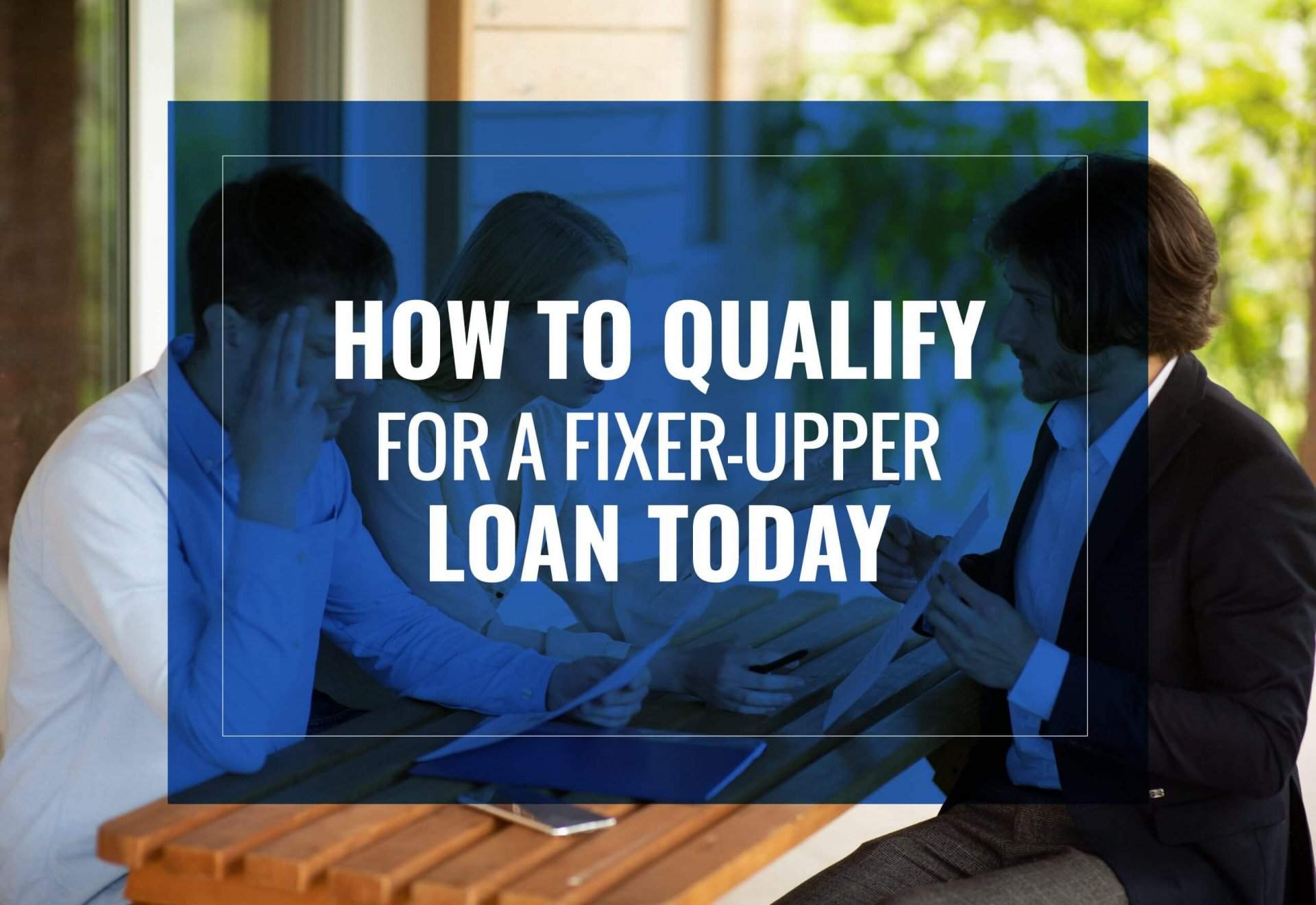How to Qualify for a Fixer-Upper Loan Today

How to Qualify for a Fixer-Upper Loan Today
Fixing up and flipping houses can be a lucrative investment, provided you find the right property, in the right area, and that doesn’t cost more in repairs than its future worth, which will prevent you from making a profit.
However, flipping homes require money to get started and to fix up the property, which traditional home loans usually do not provide. Therefore, investors will need to look outside the usual banks and other mortgage lenders, perhaps to hard money lenders, to secure funding.
But, like traditional mortgage lenders, they, too, have requirements to qualify for the hard money loan.
About Hard Money and Fixer-Upper Loans
Hard money loans carry shorter terms of 1 to 5 years, as opposed to conventional loans whose terms range from 15 to 30 years.
They also have interest rates starting at 7% to about 14%, and most hard money lenders will also have closing costs. The borrower is also usually responsible for paying fees to cover the underwriting costs, the appraisal, the escrow, and the title.
Many hard money lenders also only typically require the borrower to make monthly interest payments on the outstanding portion of the loan; however, some lenders may simply allow the interest to accumulate and then require payment once the property is flipped.
Also unlike conventional loans, the condition of the home doesn’t disqualify it for a loan. In fact, hard money lenders expect the property to be a fixer-upper when they grant the loan. Additionally, poor credit or tax returns with low income are not an issue with hard money lenders. This is an important distinction between conventional mortgage lenders and private hard money lenders – flexibility in loan underwriting.
However, like conventional lenders, the hard money lender will also be the first lien holder on the property until the loan is paid in full. But the borrower will maintain the deed, as well as ownership.
How to Get a Fix and Flip Loan
Now that we know what hard-money lenders are, let’s look at what their qualifications are for getting a fix-and-flip loan.
The Property and Your Investment Strategy
Qualifying for a fix and flip loan is more about the property itself, as well as your capacity for repayment.
In fact, to determine if the loan is justified, the hard money lender will look at the project’s loan-to-value (LTV) ratio and loan-to-cost (LTC) ratio. In other words, if the purchase and repair cost vs. the resale value makes sense, and all other requirements are also met, the lender will most likely qualify the property for a hard money loan.
The loan-to-value (LTV) ratio refers to the loan amount as a percentage of the anticipated renovation value, while the loan-to-cost (LTC) ratio refers to the loan amount as a percentage of the project’s estimated cost.
Most hard money lenders are willing to lend up to 90% of a project’s cost but no more than 75% of the property’s renovated value.
Credit Score
Though the main qualifier for a fixer-upper loan is the property itself, most lenders will still want to view your credit report to assess your creditworthiness.
However, their credit score requirements are typically more flexible, which means you may still qualify for a loan even with less than great credit. But, like most lenders, hard money lenders also tend to reserve the best loan terms for borrowers with outstanding credit scores.
Bank Statements
Hard money lenders also require borrowers to submit their bank statements, which they use to ensure the borrower has sufficient funds to pay the down payment, as well as the loan closing costs.
The lender will usually also want to view the sales contract for the home, and a licensed contractor’s estimation of suggested repairs.
If the borrower owns any other properties, the lender will also want to see a list of the properties. Likewise, if the borrower has any other homes they have fixed and flipped, the lender will want to see the documentation of them, as well. More experienced real estate investors are usually offered more favorable terms by hard money real estate investors.
Down Payment
Fix and flip lenders also require a down payment; however, unlike traditional loans, the down payments are typically higher. The amount of the down payment also varies from lender to lender; however, budget for at least a 20% to 45% down payment of the purchase price, which is the average down payment range for hard money lenders.
House Flipping Experience
Many hard money lenders will prefer to work with borrowers that have house flipping experience. They like to typically see at least one record of successfully fixing up and selling a property.
However, if you do find a hard money lender that is willing to work with inexperienced flippers, they usually charge higher interest rates and offer lower LTVs to compensate for the risk.
Other Ways How to Get a Fix and Flip Loan
-
Home Equity Line of Credit – If you currently own a property with at least 20% equity in it, you may qualify for a home equity line of credit, which can then be used to help fund your fixer-upper.
-
Personal Loan – If you are a house flipper with outstanding credit and only require a small loan to help fund your project, you may qualify for a personal loan.
-
Business Line of Credit – If you are an experienced house flipper, and you have a history of regular income and successful deals, you may qualify for a business line of credit to fund your next fix and flip project.
These are just a few ways to qualify for a fixer-upper loan; however, if you are an inexperienced house flipper, you may consider first approaching your family and friends for a loan, or you may even consider taking on an experienced finance partner to help fund your project until you have enough experience, after which time, it may be easier to qualify for a hard money loan.
Ready to get started?
If you already have a property under contract and you are ready to obtain financing, call our team of experts for a free consultation. We will go over the types of home loans for fixer-upper investments.
Please follow us on our social media platforms, Facebook, Instagram, Twitter, and LinkedIn


